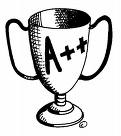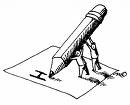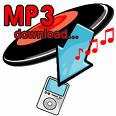Selecting a Format
Here are a few ideas as you consider the type of format you want your podcast to be.
The Journal Format
The journal format is a more personal style of podcasting that is sometimes referred to as an audio blog. The journal is a reflection space where you can share current events, challenging ideas, or just talk about your interests and perspectives. This format is very conversational even though the conversation is essentially one-way. The purpose is to share with your audience your point of view. Audio journals can be stand alone podcasts, or can be a segment within another podcast.
An Audio Essay Format
The audio essay is a mix of research and reflection on personal experiences. Stories are told in the first person, but often mix in recorded interviews to move the story along and set the ideas within a larger context. Audio essays can vary in length. One example of this format is This American Life. I Believe in Making My Father Proud, Saying Thanks to My Ghosts
Everyone has a story to tell, so think of your own and share it with your audience.
A Discussion Forum
Every Sunday morning the airwaves are full of television shows which feature round-table or panel discussions of current events and politics. An issue. event, or community issue is laid out and then each member of the panel shares their personal or expert perspective on it. Discussion formats bring out greater sense of depth because they show the listener multiple points of view. Think of the listening audience as panel members and ask for their input through e-mail, or on-line polling.
Sound Seeing Tour
Podcasts use detailed descriptions and sounds to create imagery. The "sound seeing tour" is an audio version of a travelogue that introduces the listener to a new place. Sometimes the places are famous or historical sites, and other times they are everyday places that are interesting because of personal experiences or connection that the podcaster can share as they record their tour. Check out some samples of this format.
A Variety Show
This format is flexible by design. Do you know someone who loves to tell jokes and stories that make people laugh? How about an original skit that can be acted out? You can play original student music from a local band, have interviews, book, movie, music or podcast reviews, as well as commentary and discussions.
Still can't think of what to do? Here are a few more ideas to ponder...
Poetry Journal
Use the podcast to read and interpret poetry you have written or was inspired by.
Can I Convince you?
Take the persuasive essay form directly to an audience with the added punch of your own expressive speech. Consider coupling two or three points of view on a single topic together to create a podcast about points of view.
Book Talk
Share what you have learned and thought about a book.
Word of the Day
The podcast can introduce a new word and teach the listener how to spell it. In addition, the podcast can explain its definition and origin and help listeners to use the new word in conversation. Don't be boring if you choose this ... there is lots of room for creativity with this.
Commercials
Produce a 30 second commercial for an imaginary product of your choosing. The podcast can feature narration and dialogue that describes the product and tries to convince the listener to buy it. You could also create a Public Service Announcement.
Commercial Debunker
It has been said that almost every commercial has some sort of distortion, inaccuracy or exaggeration buried within it. This podcast segment would share the actual commercial and ten a discussion would follow pointing out the inaccuracies.
This Day In History
Every day carries with it the significance of thousands of years of history. There are lots of resources on the web. Not only should you share the event, but tell of its significance and reflect on its meaning to you.
Let's Talk Leadership
Create a podcast devoted to the exploration of leadership. Offer profiles of great leaders and how their personal skills helped them meet the challenges before them. You could explore the qualities of effective leaders and interview your classmates for their ideas.
Pet Talk
Dogs and cats and fish! Oh My! Focus your podcast on a pet. Make connections with pet stores, animal trainers, veterinarians, animal control officers, kennel clubs and biologists to provide expert advice.
Math Word Problem of the Day
Try giving this an interesting twist by setting it within a podcast. Instead of just reading a problem and sharing the solution, make the focus about the process. Break the problem down and explain your thought processes as you attempt to solve the problem. Maybe you'll do it incorrectly and share how you figured out it was not correct. Then attempt it another way. For an even more creative twist, combine this activity to create a radio drama that presents the problem.
Great Moments in Math
This podcast could focus on great mathematical thinkers and their achievements throughout history. These audio portraits will help to re-fame mathematics as a unique endeavor affecting us all. Great moments podcasts can include: a brief biographical segment, a look at their most notable achievements; their BIG IDEAS, an example of how their work was applied, and a challenge to listeners to look for their influence.
Math Makes the World Go Round -How Much is Your Allowance?
This podcast would reveal how mathematics affect our lives. The host could explain the basis for the concept then begin applying everyday situations. You could conduct a poll to get the average student allowance. How much money is that for the number of students polled? How would you get the answer? What would happen if ...
The People Speak
Consider developing a segment or a show using opinion polling and data collection to talk about these issues. You could offer interviews, discuss opinion polls to gain experience and perspective on issues of concern.
My Job is...
This podcast would make connections with people who have jobs that interest you. Do a job shadow ... You could use interviews as well.
Stop. Think. What Would You Do?
You can build an interesting and productive podcast segment or stand alone segment that presents a scenario involving a difficult problem or ethical dilemma. Then ask your listeners to come to a decision about what they would do and why. You could include "person on the street" interviews where people share what they would do in a particular situation.
Review Shows
Share a review and develop advice for your audience. Be sure to establish a logical and fair rating system. Think back to the Code of Ethics poster you created earlier. You could rate restaurants, music, movies, books, video games, food or other products. These reviews are subjective and will reflect your personal interests and perspectives. There is not an absolute truth when it comes to most reviews. Audiences find reviewers who share their point of view and provide in depth and practical reviews. Of course the truest test of a review is to follow the advice of the reviewer and to see if your own conclusions match theirs.
Liars Club
Put on your best poker face and try to pull a fast one on your listeners while you test their ability to distinguish fact from fiction. This is a quiz show where you use persuasive tactics to convince your listeners that you are telling the truth. Your listeners should be instructed as to what you are doing and why. It might work like this ... Ask a question and give 2- 3 answers. However, only one answer will be correct. Try not to let your tone of voice give the answer away. Make you listeners hunt for the answer. The winning answer along with the deductive strategies would be featured at the end of the show.
If you STILL don't know what to do ... see you teacher!
![]()
 PODCASTING
PODCASTING
 Listen to Podcasts
Listen to Podcasts 
 Favorite Finds!
Favorite Finds! Let's Talk!
Let's Talk! 
 What Makes a Good Podcast?
What Makes a Good Podcast? Scripting a Podcast
Scripting a Podcast  Recording Your Voice
Recording Your Voice  Editing Your Audio
Editing Your Audio  Enhancing Your Audio with Music
Enhancing Your Audio with Music
 Exporting Your Audio to MP3
Exporting Your Audio to MP3